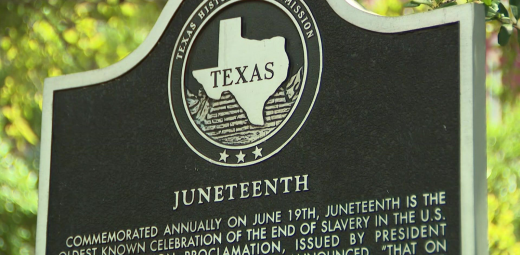
Jun 16Juneteenth
Reflections by Web Brown
SVP Racial Equity, Diversity, and Inclusion
June 19 is Juneteenth and I invite you to join me in celebrating this holiday. As we commemorate the end of slavery in the U.S., I invite you to take a moment to reflect on the sacrifices that were made for emancipation. Today, we remember Black and African Americans who have been victims of hate, injustice, and racism. Since that fateful day on June 19, 1865 — when the last slaves were freed in Galveston, TX — we have made progress as a society. But 156 years later, there is still so much more racial equity work to be done.
Positive change is possible, and communities continue to make progress toward ending systemic racism and stopping acts of violence against Black communities and communities of color. To fully realize the racial justice envisioned by the Emancipation Proclamation, communities must always work together as one, striving for racial equity, diversity, and inclusion. Mercy Housing will continue to foster neighborhoods that are free from hate and welcoming to all.
When president Abraham Lincoln issued the Emancipation Proclamation on January 1, 1863 it was intended to free all slaves. The proclamation only applied to places under Confederate control and not to slave-holding border states or rebel areas already under Union control. In Texas, slavery had continued as the state experienced no large-scale fighting or significant presence of Union troops. In fact, many slave owners from outside of Texas viewed it as a safe haven and moved there with their slaves. In Texas, approximately 250,000 people were still being held in slavery when, on June 19, 1865, Union troops arrived in Galveston to announce that the war had ended and that all slaves were now free.
But more than 150 years after the final slaves were freed, too many still don’t know why celebrating June 19th is important. Juneteenth has added significance this year, amid global unrest and protests against systemic racism. In many ways, Juneteenth represents how justice in the US has always been delayed for African Americans. In the immediate aftermath of the civil war there were waves of lynching, imprisonment, and Jim Crow laws that were implemented. What followed that was the disproportionate impact of mass incarceration, discriminatory housing policies, and a lack of economic investment. Juneteenth should serve as a reminder of the need for us to commit to structural changes that the country has not yet addressed.
Today its important for all of us to acknowledge Juneteenth in our own way whether that be posting something on your social media page, having a discussion with our kids, or having a celebration with neighbors. Show your community that the historical experience of African Americans and the struggles that they have had to endure is one worth acknowledging. Use this as an opportunity to educate yourself and others about a reality that may be far removed from many of us, the reality of systemic racism and pervasive injustice in our country. Let’s use this time as a critical moment of observation and reflection about the impact of our nation’s past, how it impacts the present lived experience of African Americans, and what we have to do to create a better future.
You may also like:
- Exploring the Rich Tapestry of Native American History Did you know that Native people were the first homeless population in the United States?...
Stay Up To Date
Get news on Mercy Housing and inspiring stories of change delivered to your inbox.


